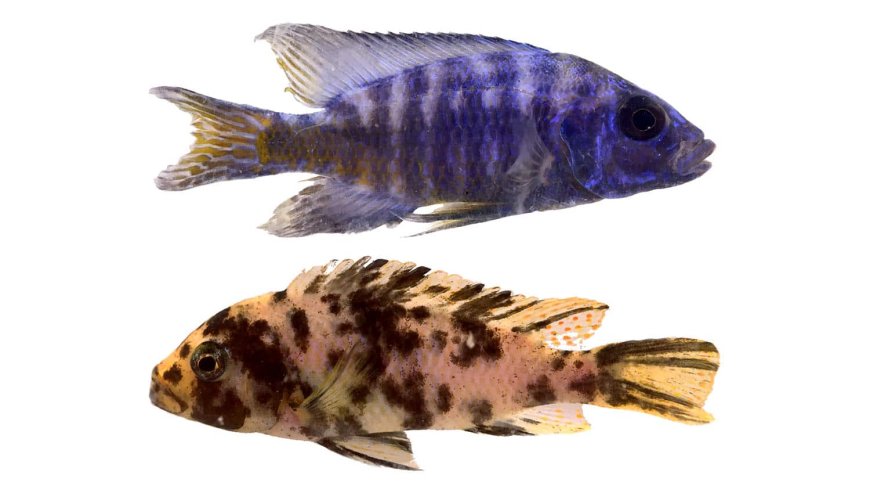Study Finds Gut Length in Fish Species Influenced by 'Sexual Conflict'
A recent study on cichlid fish species revealed that genetic loci affecting gut length are sex-specific, despite males and females of the same species having similar gut lengths. This suggests the presence of 'sexual conflict' where gut length evolution differs for males and females within a species. The findings could have broader implications for understanding gut length evolution.

A new study found that some genetic loci for gut length in cichlid fish species are sex-specific, even though males and females of the same species have the same gut length. This supports the idea of 'sexual conflict,' where gut length differences evolved under different pressures for males and females of the same species. The research could have implications for understanding gut length evolution.
Reade Roberts, associate professor of biological sciences at North Carolina State University, explains that gut length is a crucial trait for animals, with carnivores typically having short guts and herbivores having long guts. However, the genetic basis of these differences is not well understood due to the complexity of the trait.
The study used two closely related cichlid species from Lake Malawi in Africa to compare genetic differences in gut length. By analyzing carnivore, omnivore, and herbivore species, the researchers identified genetic loci that influence gut length, with some loci affecting males and females differently.
The differing dietary pressures faced by male and female cichlids may explain the sex-specific genetic variants. For instance, male cichlids are territorial and face varying food availability, while females experience periods of starvation due to caring for their offspring. The study highlights the importance of considering sex in genetic studies to uncover the full genetic basis of traits like gut length.
The research not only sheds light on gut length evolution in fish but also has potential implications for human health. Understanding the genetic pathways involved in gut length differences could inform future biomedical research.
The study was published in Genetics and supported by various grants. Aldo Baez, a postdoctoral researcher at NC State, is the first author of the study.
What's Your Reaction?
 Like
0
Like
0
 Dislike
0
Dislike
0
 Love
0
Love
0
 Funny
0
Funny
0
 Angry
0
Angry
0
 Sad
0
Sad
0
 Wow
0
Wow
0













































































































































































